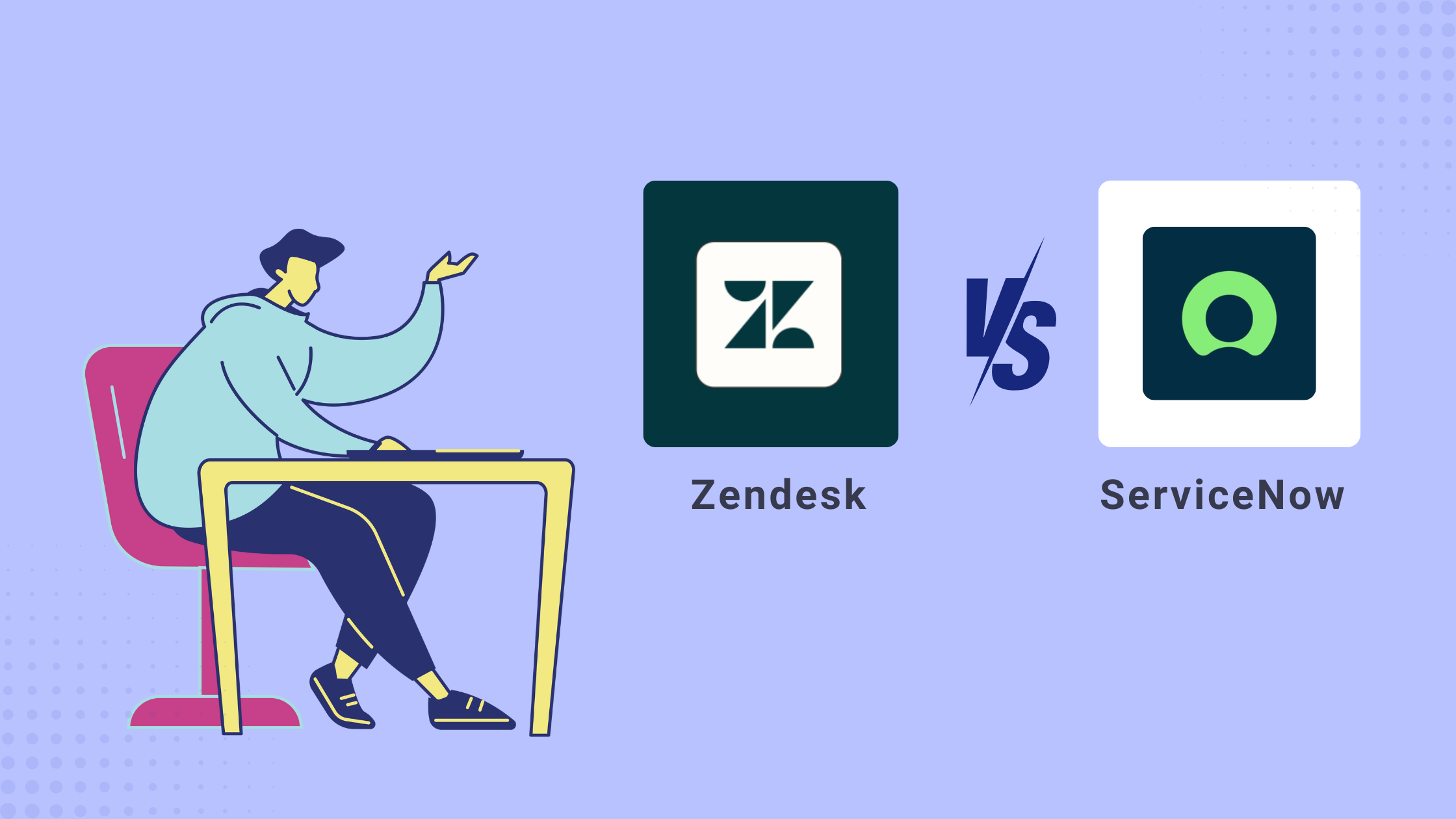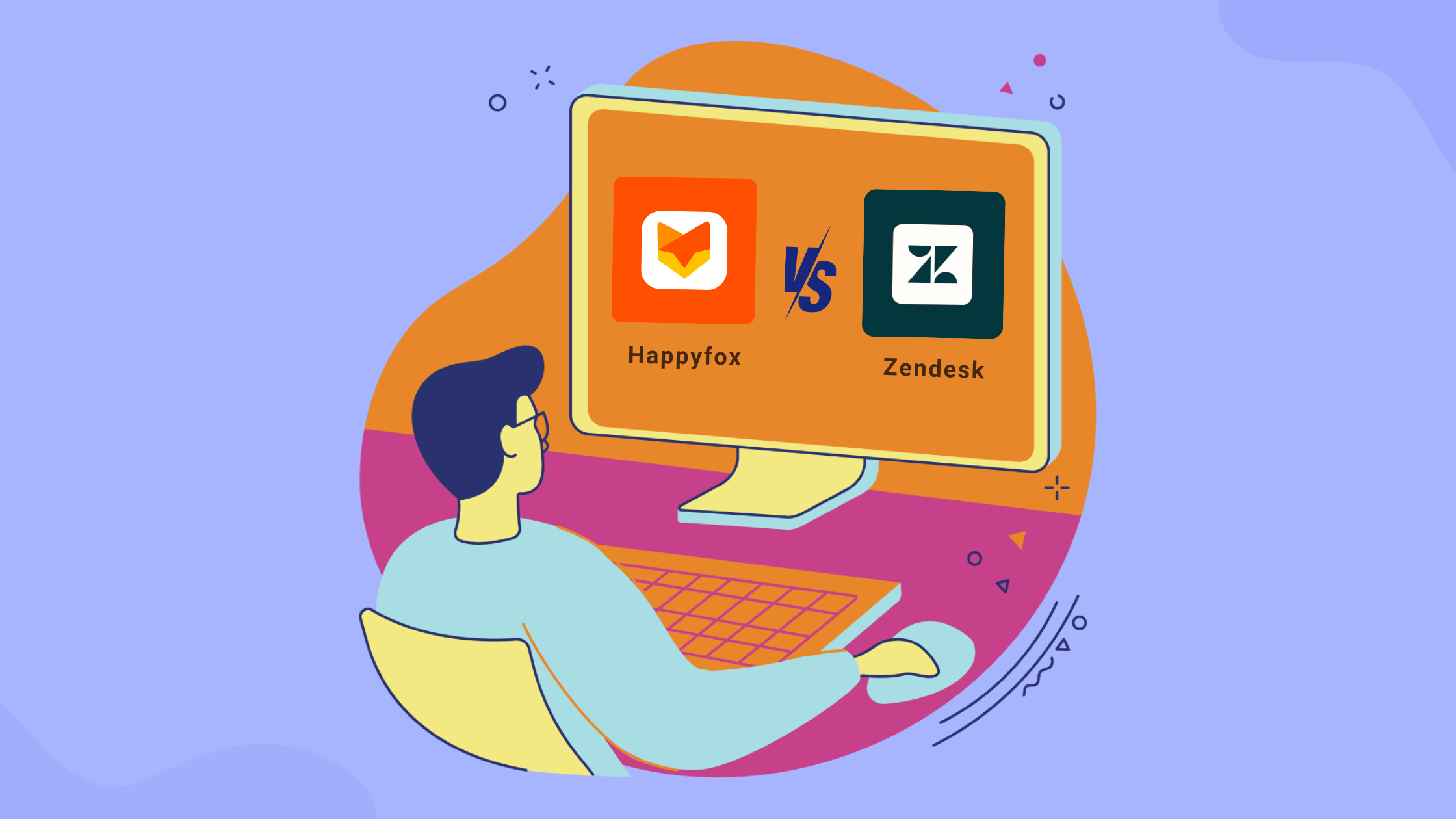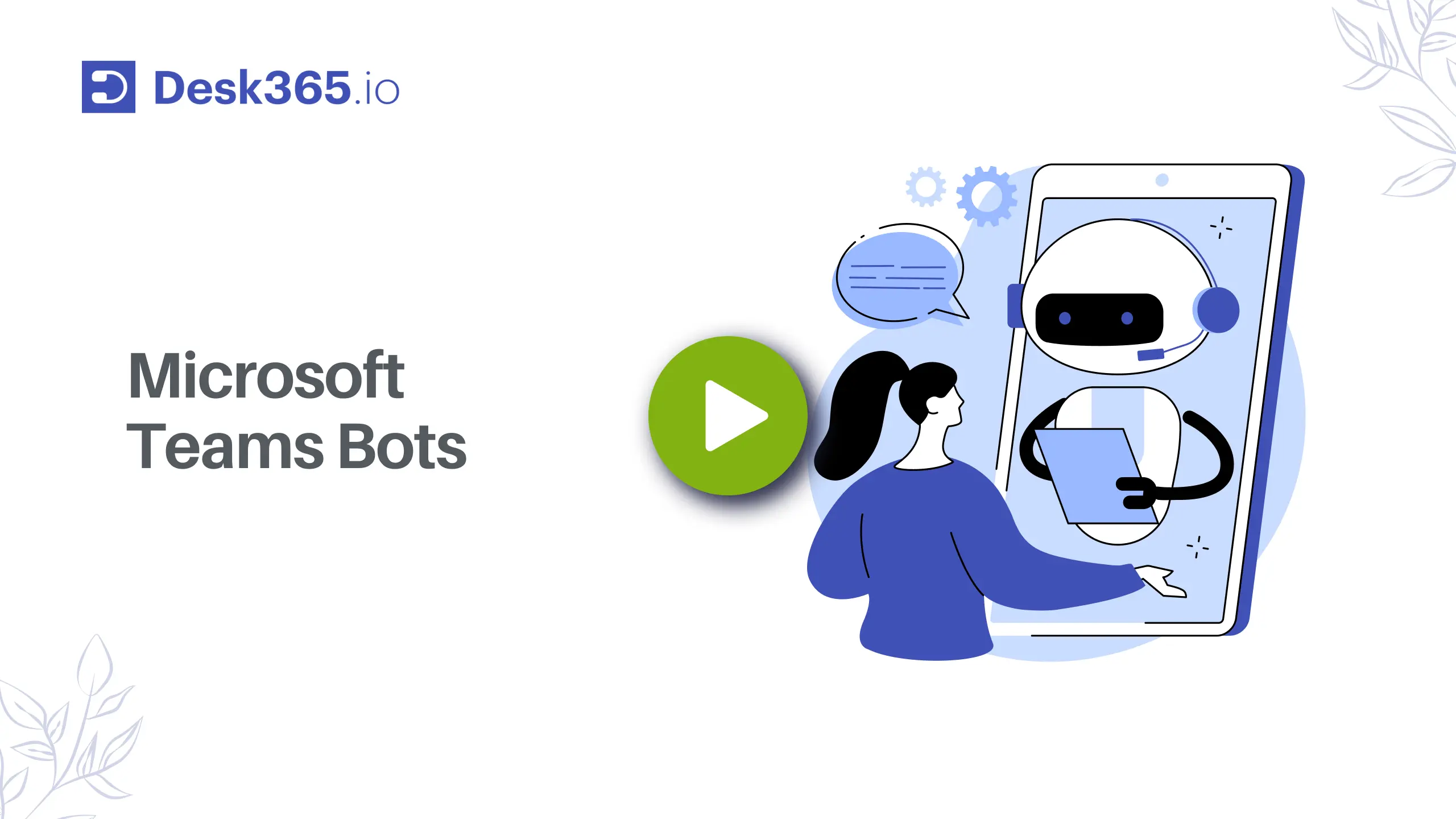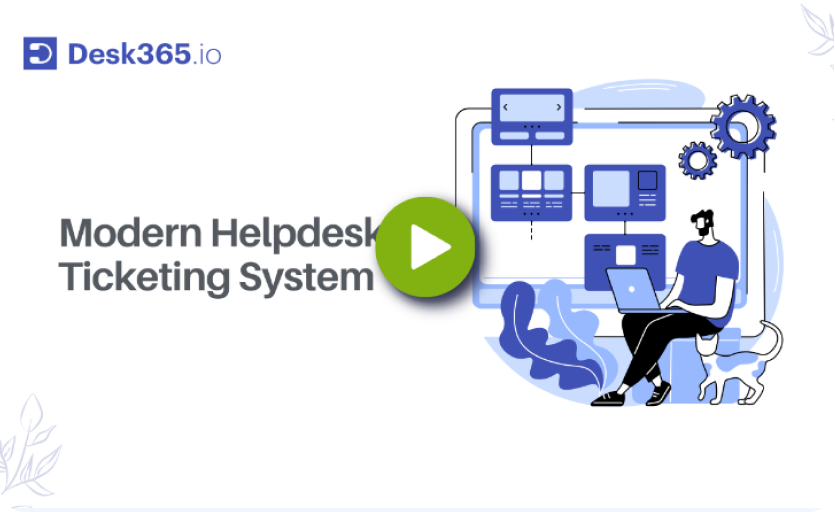Struggling to choose between Zendesk vs ServiceNow for your IT support needs? Both platforms offer powerful tools like ticketing, workflow automation, and customer support to help businesses run smoothly.
However, they serve different purposes. Zendesk is a customer-focused platform, perfect for businesses looking to improve their helpdesk experience. ServiceNow is more suited for enterprise-wide IT service management, with advanced automation and workflow capabilities.
Deciding between the two isn’t easy since both bring unique strengths to the table. That’s why we’ve put together this detailed guide to help you compare them and choose the best fit for your business. Let’s dive in!
Zendesk overview
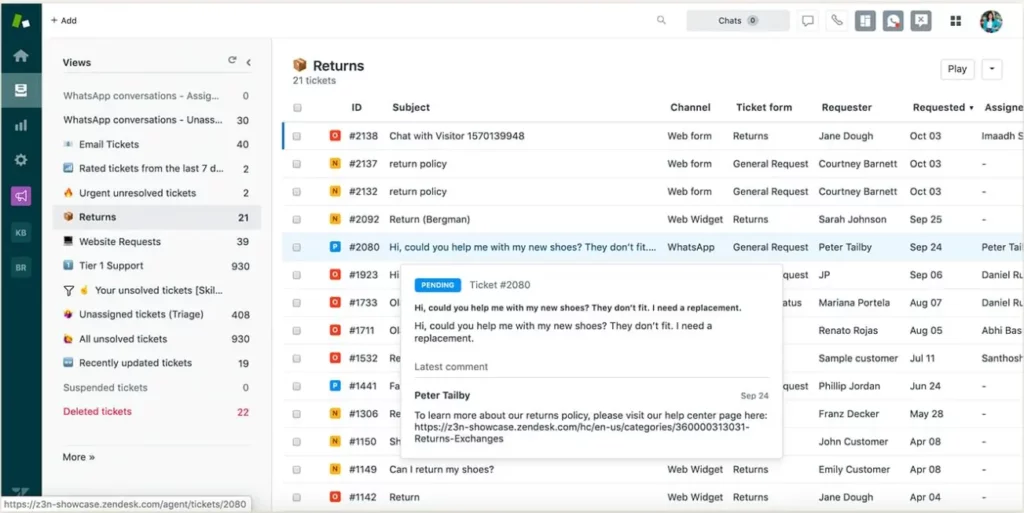
Zendesk is a well-known customer service platform designed to help businesses manage customer interactions across multiple channels like email, chat, social media, and phone. It provides a seamless experience, making it easier for support teams to handle inquiries, track issues, and resolve problems efficiently.
This platform is widely used by businesses of all sizes because of its easy-to-use interface, making it a great choice for companies that want a simple yet effective customer support system. With features like ticket management, a knowledge base, automation tools, and reporting, Zendesk helps businesses improve their customer service without requiring complex technical expertise.
Key features of Zendesk
- Omnichannel support – Manage customer interactions across multiple platforms (email, chat, phone, social media) in one place.
- Ticketing system – Automatically organize and track customer issues to ensure quick resolutions.
- Knowledge base – Create a self-service portal where customers can find answers without needing agent assistance.
- Live chat & messaging – Engage with customers in real-time through chat and messaging apps.
- Integration options – Connect with third-party tools like Slack, Salesforce, and Shopify for better workflow management.
- Analytics & reporting – Get insights into customer interactions and agent performance to improve service quality.
Recommended Reading: 12 Key Zendesk Features in 2025
Pros of Zendesk
- Easy to set up and navigate, even for beginners.
- Connects with various business apps to streamline processes.
- Helps teams manage customer requests faster.
Cons of Zendesk
- It may not be flexible enough for businesses with highly specific needs.
- Lacks advanced workflow automation compared to competitors.
- Not designed for enterprise-level IT service management like ServiceNow.
Recommended Reading: Zendesk Reviews 2025: The Good, the Bad and the Ugly
ServiceNow overview
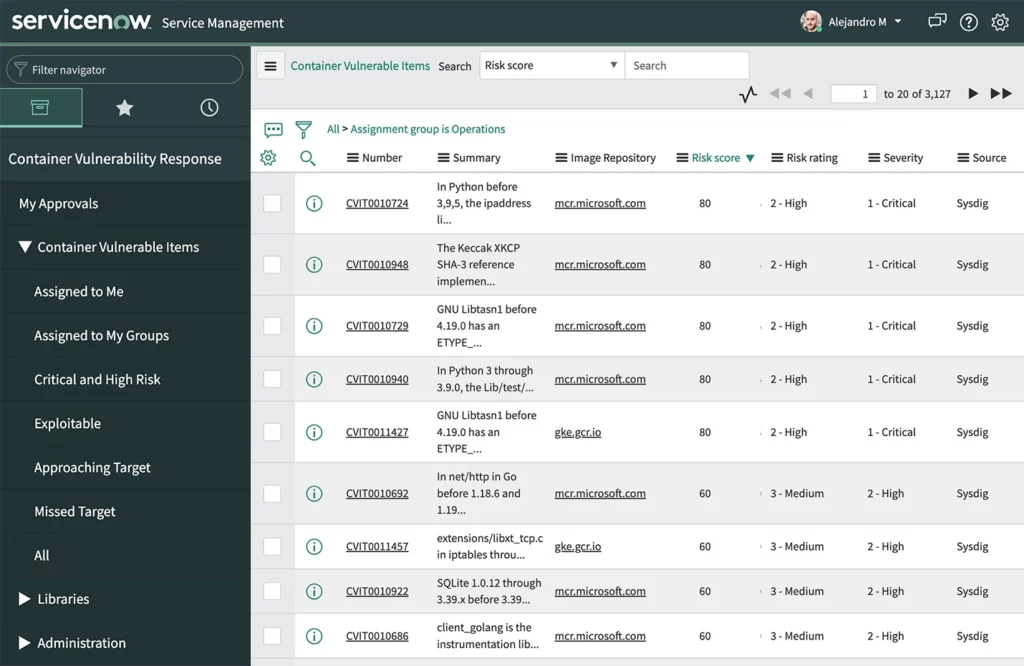
ServiceNow is a powerful IT Service Management (ITSM) platform designed to help businesses automate workflows, manage IT operations, and improve overall efficiency. Unlike Zendesk, which focuses on customer support, ServiceNow is an enterprise-level solution built for handling complex IT processes, making it a top choice for large organizations and IT teams.
With AI-driven automation, advanced reporting, and IT workflow management, ServiceNow helps businesses reduce downtime, streamline operations, and improve service delivery across departments. It’s a highly scalable platform, making it ideal for growing businesses looking for end-to-end IT solutions.
Key features of ServiceNow
- IT Service Management (ITSM) – A complete IT solution for incident management, problem resolution, and service requests.
- Automation & AI – Uses AI-powered automation to streamline workflows and improve agent productivity.
- Asset & configuration management – Track IT assets and configurations to reduce risks and ensure compliance.
- Self-service portal – Employees and customers can find solutions to common issues without needing IT support.
- Change management – Helps businesses track, analyze, and implement IT changes smoothly.
- Integration capabilities – Connects with third-party apps like Jira, Salesforce, etc.
Pros of ServiceNow
- Designed for large businesses with complex IT needs.
- Reduces manual work and boosts efficiency.
- Highly flexible to match different business requirements.
Cons of ServiceNow
- Steep learning curve, can be overwhelming for beginners.
- More suitable for enterprises with larger budgets.
- Its complex setup requires IT expertise to configure and manage
Zendesk vs ServiceNow
When evaluating Zendesk and ServiceNow, businesses must consider their specific needs for customer support, IT service management (ITSM), and overall service automation. Both platforms offer robust features, but they cater to different use cases and industries. In this detailed comparison, we’ll explore the similarities, differences, feature comparison, and pricing of Zendesk and ServiceNow to help you choose the right solution for your organization.
Similarities
- Cloud-based solutions: Both Zendesk and ServiceNow are cloud-based helpdesk ticketing systems, offering flexibility for remote teams to collaborate and access their platforms from anywhere with an internet connection.
- Omnichannel support: Both platforms provide omnichannel support, enabling customer service teams to handle queries across multiple channels such as email, chat, phone, and social media.
- Ticket management and asset management: Zendesk and ServiceNow both offer features for ticket management and asset management, allowing businesses to track issues and manage customer assets efficiently.
- Mobile accessibility: Both platforms have mobile apps, ensuring users can access essential data and services on the go.
- Customization options: Zendesk and ServiceNow both allow customization of workflows, dashboards, and reports to cater to specific business requirements.
- Privacy and security: Both platforms prioritize data security and privacy, implementing encryption and compliance with global standards.
Differences
1. Target audience
Zendesk is primarily focused on customer service and support, making it suitable for small to mid-sized businesses that need an easy-to-use platform for handling customer interactions.
ServiceNow is designed for large enterprises with complex IT service management needs, offering comprehensive ITSM functionality and customizable workflows.
2. Ease of use
Zendesk is known for its simple, user-friendly interface, requiring minimal training and setup, making it ideal for teams looking for quick adoption.
ServiceNow has a more complex interface that may require additional training to master, often leading to a steeper learning curve.
3. ITSM functionality
Zendesk lacks a native ITSM solution but provides customer support functionality suitable for businesses that focus on customer interactions rather than IT service management.
ServiceNow excels in ITSM, offering robust features for incident management, change management, and problem management, making it the preferred choice for organizations needing advanced IT service solutions.
4. Customizability and automation
ServiceNow is highly customizable, allowing businesses to create tailored workflows, forms, and business rules. It also offers advanced automation capabilities, including machine learning and AI-powered features.
Zendesk, while customizable to an extent, offers fewer automation options compared to ServiceNow, making it better suited for businesses that prioritize ease of use over deep customization.
5. Integrations
Zendesk boasts more than 1,800 integrations with third-party applications, offering a wider range of tools for businesses to extend their customer service operations.
ServiceNow offers around 1,000 integrations but focuses more on IT-related tools and services. It lacks native social media integrations, which could limit its omnichannel support.
6. Pricing
Zendesk has a transparent pricing model with plans starting from $19 per agent/month, catering to businesses of various sizes. It offers flexible plans with free trials and demos.
ServiceNow does not publicly disclose its pricing. Instead, businesses must request custom quotes. ServiceNow typically requires more resources for setup and administration, leading to higher costs.
Recommended Reading: Zendesk Pricing 2025: The Complete Guide
Key differences at a glance
Zendesk
ServiceNow
Target Audience
Small to mid-sized businesses
Large enterprises and IT-focused organizations
Ease of Use
User-friendly, minimal setup
Complex, requires training and resources
Omnichannel Support
Seamless management of email, chat, phone, social media, and messaging apps from one platform
Supports multi-channel communication but focuses more on internal request management and enterprise portals
AI-powered Support
Yes
Yes
Integrations
Offers a wide range of integrations and add-ons
Offers a wide range of integrations and add-ons
Self-Service Options
Yes
Yes
Reporting & Analytics
Advanced analytics and reporting tools
Robust reporting and analytics, but more IT-focused
Workflow Automation
Flexible workflow automation, drag-and-drop options
Extensive automation, highly customizable (requires IT expertise)
Customization
Highly customizable workflows and integrations
Extensive customization for ITSM, workflows, and forms
Pricing Transparency
Transparent pricing with various plans
Pricing not publicly available, custom quotes required
ITSM Features
Limited ITSM features, more focused on customer service
Comprehensive ITSM features, ITIL-based
Ticket Management
Easy-to-use ticketing system with customization options
More complex ticket management for IT services
Why do businesses choose Desk365?
Businesses opt for Desk365 for its smart, AI-powered help desk solution that simplifies customer service management. Featuring an intuitive interface, powerful omnichannel support, and easy integrations, Desk365 helps businesses improve customer satisfaction, reduce response times, and lower operational costs. With flexible automation and real-time analytics, teams can quickly address issues, enhancing efficiency and delivering superior customer experiences.
Omni-Channel
- Microsoft Teams Ticketing
- Email Ticketing
- Customer Support Portal
- Web Form/Web Widget
- Unified Inbox
Process Automation
- Automation Rules
- Custom Response Templates
- Canned Responses
- Tasks/To-do Lists
- Time Tracking
- SLA Management & Business Hours
- SLA Reminders & Escalations
- Multiple SLAs
- SLAs in Automations
Ticket Management
- Custom Ticket Views
- Customer Management
- Responsive Mobile Web Apps
- Multiple Emails
- Multiple Groups/Departments
- AI Agent
- Collision Detection
- Closure Rules
- Knowledge Base
Data & Analytics
- Customer Surveys & Reports
- Ticket Trend Reports
- Productivity/SLA Reports
- Export Data
- Import Data
Customization
- Custom Email Servers
- Custom Ticket Fields
- Custom Forms
- Custom Roles
- Custom Reports & Graphs
- Remove Desk365 Branding
Integrations
- Entra ID Single Sign-on
- API Access
- Web-hooks
- Power Automate Connector
- Microsoft 365 Copilot Plugin
Support
- Free Setup and Installation
- Priority Support
What our customers are saying

"We love Desk365! Former Zendesk Client"
Desk365 can be customized to your absolute liking. You can pull granular reporting, view and sort your tickets with ease and stay organized. There is so much automation, it’s very user friendly and easy to set up. We are so glad to have made the switch from Zendesk and we would not go back! Desk365 is also Soc 2 Type 2 compliant! This is a premium helpdesk at a great price. I couldn’t manage IT without it! I am also continuously impressed with their client dedication – if you suggest an improvement, they genuinely take it into consideration! They consistently roll out improvements. We are so grateful!
Robin B
Business Administration Management
Ultimately, the choice between Zendesk, ServiceNow, and Desk365 depends on your business needs. Zendesk is ideal for small to medium-sized companies seeking an easy-to-use, customer-focused platform, while ServiceNow excels for large enterprises requiring advanced IT service management. Desk365 offers a balanced solution with AI-driven support, seamless integrations, and omnichannel capabilities, making it perfect for businesses looking to optimize customer service efficiently.
